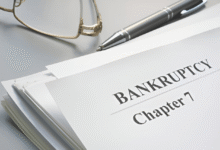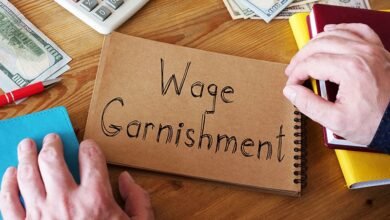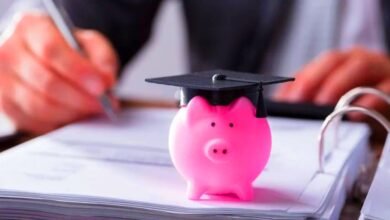The Emotional Toll of Bankruptcy: Coping Strategies

Bankruptcy is not merely a financial challenge; it significantly affects one’s emotional well-being. The stigma attached to financial difficulties often exacerbates the emotional burden, making it essential to address the psychological aspects of bankruptcy. In this article, we’ll delve into the emotional toll of bankruptcy and provide practical coping strategies to navigate this challenging journey.
Understanding the Emotional Toll
Bankruptcy brings forth a wave of emotions that can be overwhelming. Acknowledging and normalizing these feelings is essential to initiate the healing process. Individuals often experience a sense of failure and worry about societal judgment. Recognizing and understanding these emotions is the first step towards coping effectively.
Breaking the Stigma
Society’s perception of bankruptcy adds extra stress for those already struggling. It’s vital to break the stigma surrounding financial difficulties, emphasizing that setbacks happen to the best of us. By reshaping societal attitudes, we create a more supportive environment for those facing economic challenges.
Seeking Emotional Support
A robust support system can make a significant difference during tough financial times. Open communication with friends and family is crucial. By sharing the burden, individuals can reduce feelings of isolation and receive the emotional support they need.
Professional Guidance and Counseling
In addition to personal networks, seeking professional guidance is invaluable. Financial counselors and therapists can provide objective insights and emotional support tailored to an individual’s situation.
Financial Education for Emotional Resilience
Enhancing financial literacy is a powerful tool for emotional resilience. Understanding financial concepts and planning can empower individuals, boosting their confidence and reducing anxiety about the future.
Coping Strategies for Stress and Anxiety
Managing stress and anxiety is integral to emotional well-being. Practical strategies such as mindfulness, meditation, and regular exercise can significantly alleviate emotional burdens during bankruptcy.
Read More: The Ins and Outs of Chapter 13 Bankruptcy
Creating a Realistic Financial Plan
A well-thought-out financial plan is a cornerstone of recovery. This section will guide readers through creating a realistic budget, helping them regain control of their finances.
Building a Supportive Community
Online and offline communities provide a sense of belonging and understanding. We’ll explore platforms and groups where individuals can share experiences, seek advice, and find encouragement.
Embracing a Positive Mindset
A positive outlook is a powerful catalyst for recovery. This section will discuss the impact of mindset on financial recovery and provide actionable steps for cultivating optimism.
Legal Aspects of Bankruptcy
Understanding the legal aspects of bankruptcy is crucial for a smoother process. We’ll briefly cover the legalities involved and stress the importance of seeking legal counsel to navigate the complexities.
Rebuilding Credit and Financial Reputation
Recovering from bankruptcy involves rebuilding credit. This section will offer practical strategies and share success stories of individuals who successfully improved their financial standing post-bankruptcy.
Preventing Future Financial Challenges
Proactive measures can prevent future financial crises. Readers will gain insights into financial planning to safeguard against unforeseen challenges.
The Role of Community Resources
Local and national resources can provide essential support. This section will list available resources, encouraging readers to explore these options.
Read More: How to Understand Chapter 7 Bankruptcy
Conclusion
Navigating the emotional toll of bankruptcy requires a holistic approach. By addressing the stigma, seeking support, and adopting coping strategies, individuals can emerge more robust and resilient. Remember, the journey to financial recovery is as much about emotional well-being as monetary stability.
FAQs(The Emotional Toll of Bankruptcy)
Can I rebuild my credit after bankruptcy?
Absolutely. Many individuals successfully rebuild their credit post-bankruptcy. It requires patience, discipline, and a strategic approach.
How can I find a reliable financial counselor?
Research local agencies, check reviews, and ask for recommendations. Ensure they have the necessary credentials and experience.
Are there online communities for people going through bankruptcy?
Numerous online forums and groups provide support and a platform for sharing experiences. Seek communities that resonate with your situation.
What legal assistance do I need during bankruptcy?
Consulting with a bankruptcy attorney is advisable. They can guide you through the legalities and ensure you meet all requirements.
How long does it take to recover emotionally from bankruptcy?
The emotional recovery process varies for each individual. Seeking support, both personally and professionally, can expedite the healing process.












2 Comments